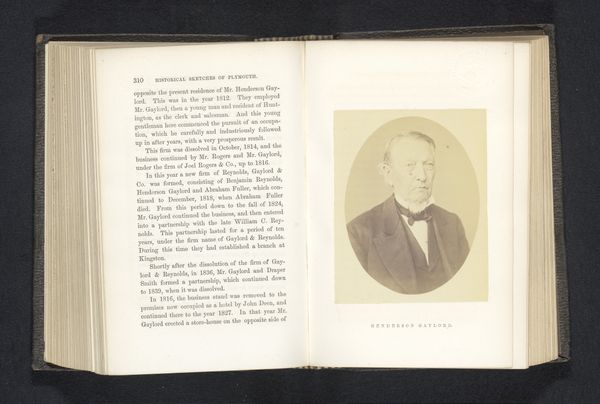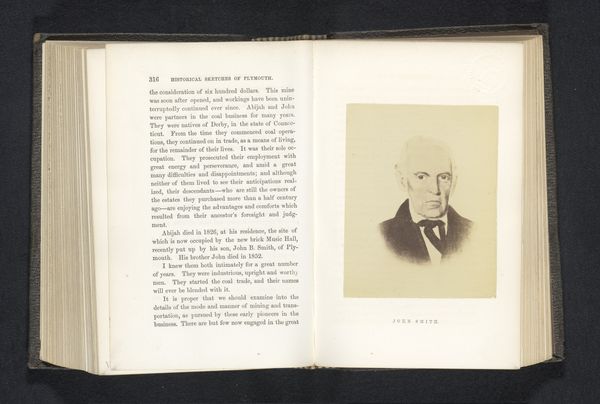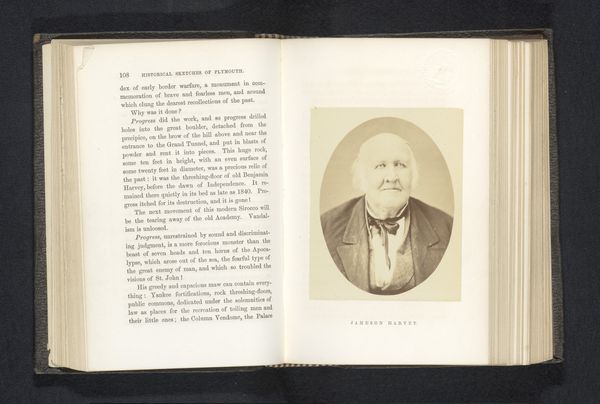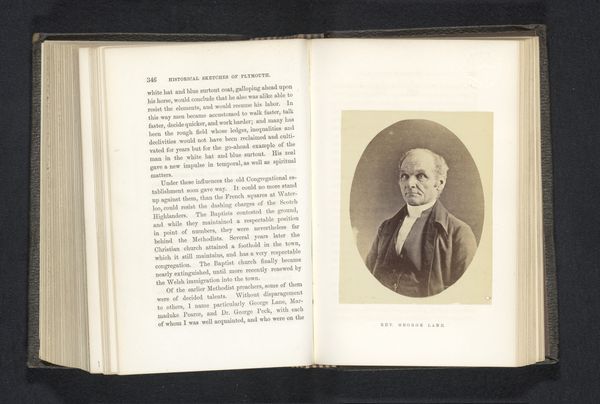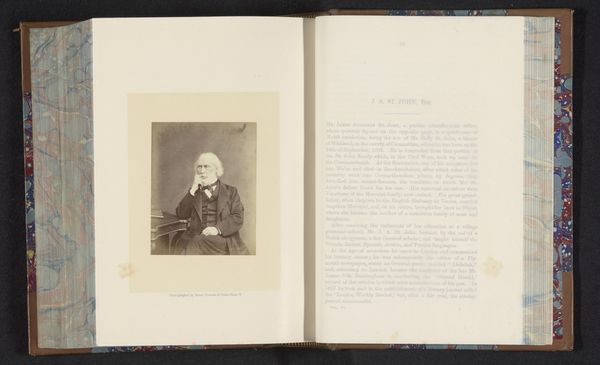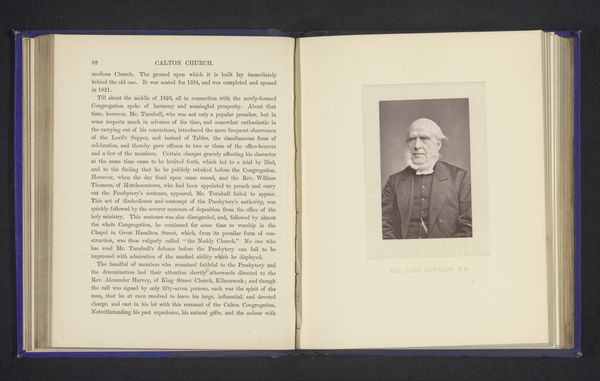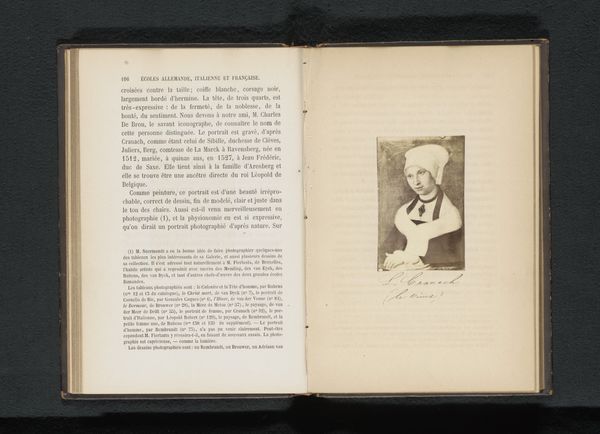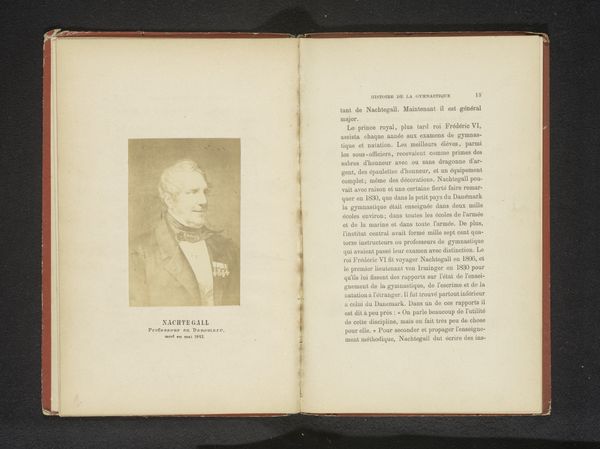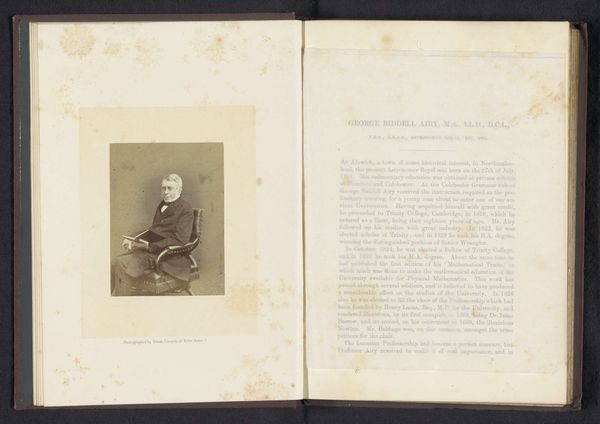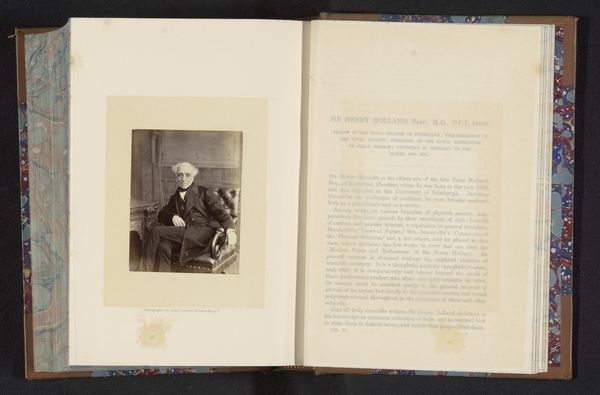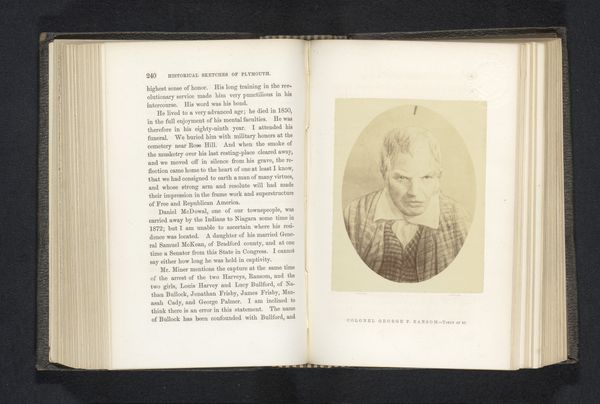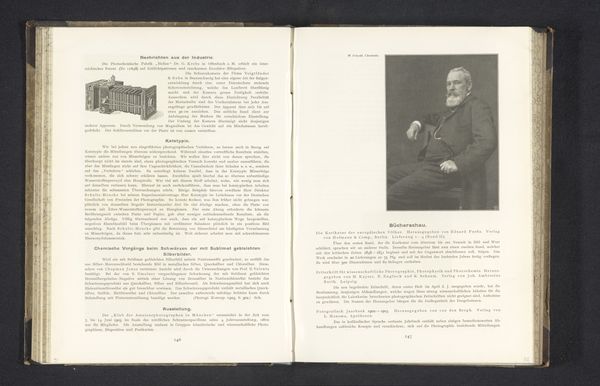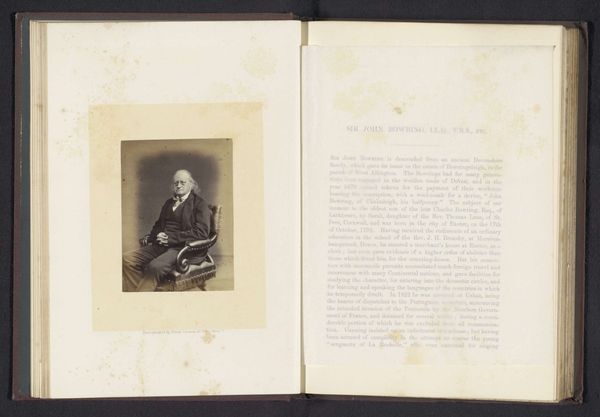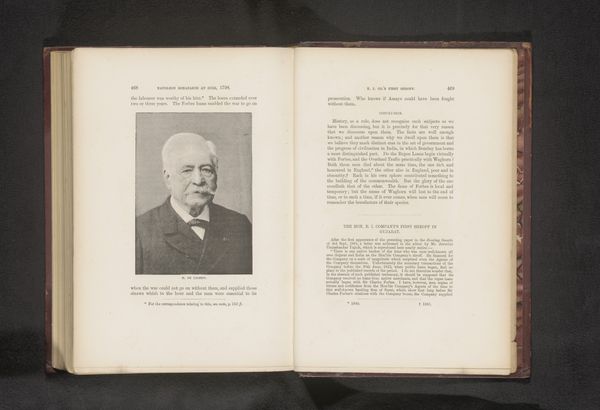
photography
#
portrait
#
aged paper
#
sketch book
#
personal journal design
#
photography
#
personal sketchbook
#
journal
#
stylized text
#
thick font
#
history-painting
#
handwritten font
#
realism
#
historical font
#
columned text
Dimensions: height 110 mm, width 87 mm
Copyright: Rijks Museum: Open Domain
Curator: What immediately strikes me about this photorealistic portrait of Calvin Wadhams from before 1873, displayed within this opened book, is the stark contrast between the handwritten, almost biographical text beside the solemn image. Editor: Yes, it's quite interesting how the two pages complement each other. I’m initially drawn to the portrait itself. It's sepia-toned and quite striking, capturing this individual with what seems like a stern gaze. What do you see in this piece? Curator: I see a man presented with layers of societal projection. Look closely at the columned text – the historical font describing his ‘agreeable person,’ alongside the details of his wealth accumulation – placed against the individual's weathered face. What does the book format itself suggest to you about the artist's or the subject's aspirations? Editor: That’s interesting. The book format suggests permanence, perhaps an attempt to memorialize him, ensuring he isn't forgotten, immortalized in the historical archive, and adding an important contribution to historical Plymouth, and its prominent people. Curator: Precisely! It acts almost as a secular illuminated manuscript. Wadhams is consciously placed in history. The thick font naming “CALVIN WADHAMS” serves almost like a medieval inscription. This portrait uses not only realism in the subject's image but text and bookmaking conventions to build his lasting image. How does that influence your initial perspective now? Editor: I hadn't thought about the deliberate way the artist combined the photographic realism of the portrait with the text as an active memorialization effort. It’s no longer just a portrait, it’s a constructed narrative about legacy. Thanks for bringing this to my attention. Curator: Indeed! Images rarely exist in a vacuum. Understanding their placement within a context like this book reveals intentional layers of meaning.
Comments
No comments
Be the first to comment and join the conversation on the ultimate creative platform.
